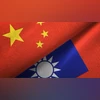Taiwan warns of China's growing censorship after textbook seizures
Chinese General Administration of Customs posted on Sina Weibo that its Fuzhou branch had confiscated three books imported from Taiwan, claiming they contained 'problematic maps'
)
Taiwan's SEF also cautioned individuals working, traveling, or doing business in China to exercise caution
Listen to This Article
The Straits Exchange Foundation (SEF) of Taiwan issued a warning to the public yesterday regarding China's escalating censorship of publications, following Beijing's recent seizure of Taiwanese textbooks for allegedly violating the "one China" principle, Taipei Times reported.
The Chinese General Administration of Customs posted on Sina Weibo that its Fuzhou branch had confiscated three books imported from Taiwan, claiming they contained "problematic maps" that depicted Taiwan as a separate country and did not acknowledge Beijing's territorial claims in the South China Sea, Taipei Times reported.
According to the agency, these books "violated the 'one China' principle and posed a serious threat to national unification, sovereignty, and territorial integrity," as per Taipei Times.
A video released by the agency showed that the confiscated materials were Taiwanese history and geography textbooks intended for junior high school students.
In response, the SEF highlighted that Beijing is increasingly using cultural and educational exchanges across the Taiwan Strait as a means to undermine Taiwan's sovereignty. The foundation stressed that Taiwanese citizens should be aware that China is not a democracy and that its system is fundamentally different from Taiwan's free society, as per Taipei Times.
Also Read
The SEF also cautioned individuals working, traveling, or doing business in China to exercise caution.
The report also noted that Chinese customs authorities have intensified their censorship of printed materials related to China's territorial claims, Taipei Times reported.
SEF reported that customs officers in Nanning, China, recently confiscated maps that did not identify certain islands in the South China Sea as Chinese territories and destroyed textbooks belonging to Hong Kong students traveling in China. Furthermore, Taiwanese and Hong Kong textbooks have been increasingly seized or destroyed by Chinese customs officials.
The SEF also pointed out that Taiwan operates schools in Shanghai, Guangdong, and Jiangsu, which rely on textbooks imported from Taiwan. These schools have been affected by China's censorship policies, with remedial lessons organized during summer and winter vacations due to difficulties in teaching certain subjects.
Chinese Nationalist Party (KMT) Legislator Lai Shyh-bao criticized Beijing's actions, calling the book seizures an overreaction. He argued that Taiwanese schools in China had been sending textbooks by mail without issues until now, suggesting that the recent seizures may be due to significant content changes or a hidden agenda, Taipei Times said.
When asked whether the textbook seizures were part of China's "united front" efforts, Lai downplayed the issue, stating that Taiwanese schools in China must comply with Chinese laws and that there was no need to focus on the matter.
(Only the headline and picture of this report may have been reworked by the Business Standard staff; the rest of the content is auto-generated from a syndicated feed.)
More From This Section
Don't miss the most important news and views of the day. Get them on our Telegram channel
First Published: Nov 27 2024 | 2:41 PM IST

